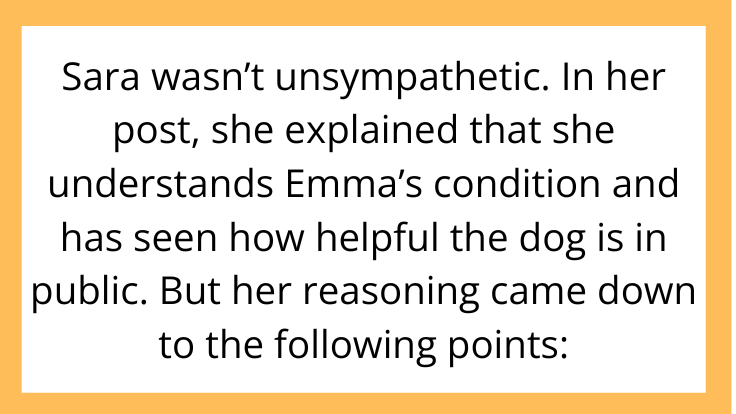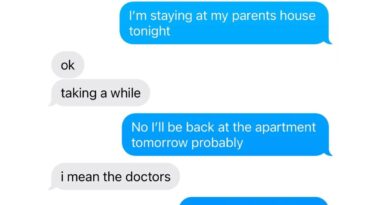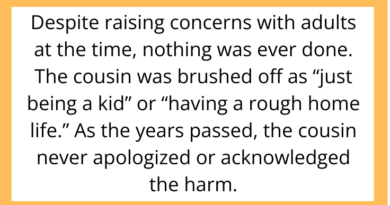AITAH for Not Letting My Best Friend Bring Her Service Dog to My Wedding?
Weddings are deeply personal events, and setting boundaries for your big day is completely normal. But what happens when those boundaries clash with someone else’s essential needs? In today’s AITAH-inspired story, we dive into a tricky situation where inclusion, health, and celebration come head-to-head. Let’s explore whether this bride-to-be was being thoughtful—or thoughtless.
The Background: A Wedding with Clear Rules
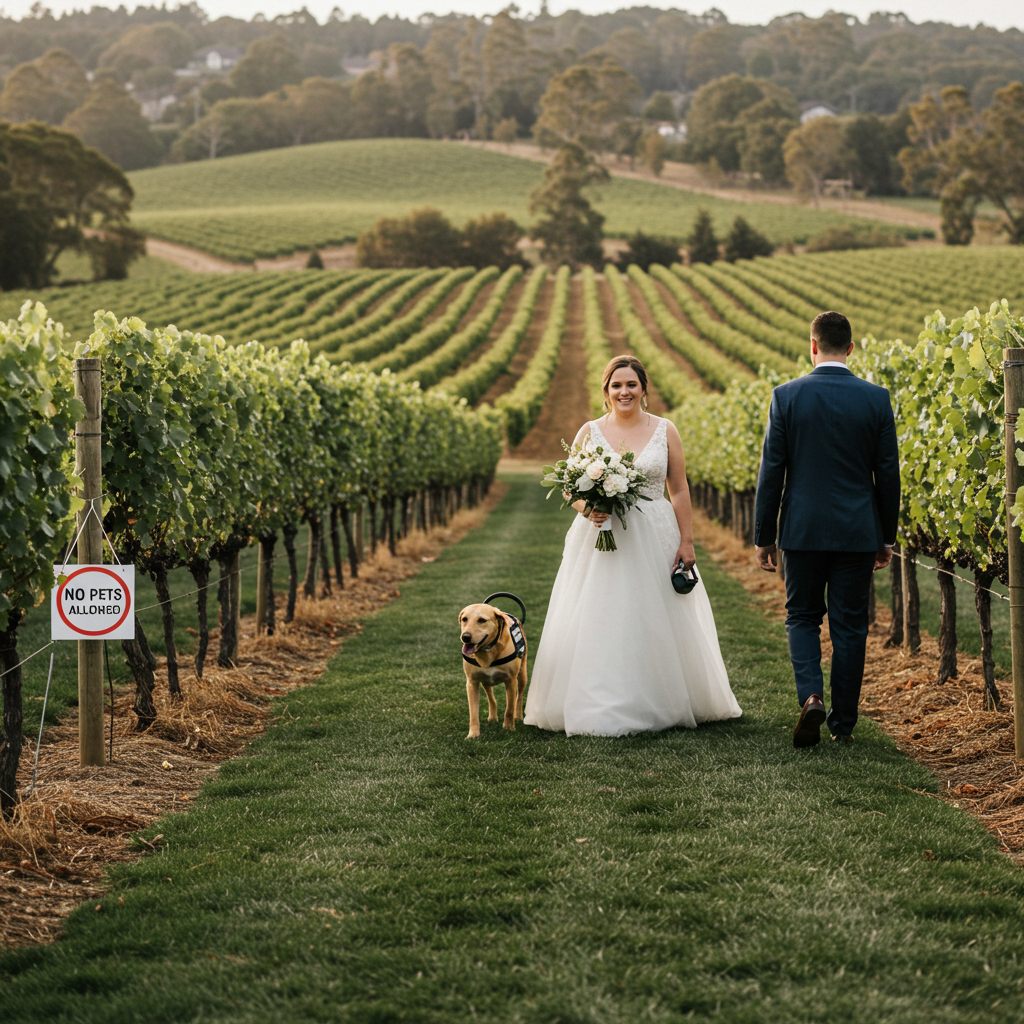
A 28-year-old woman, whom we’ll call Sara, shared her story on r/AITAH after a difficult confrontation with her best friend, Emma. Sara is planning a destination wedding at a vineyard in California—an outdoor ceremony followed by a seated dinner reception. She made it clear in the invitations that while guests could bring a plus-one, pets were not allowed due to the venue’s restrictions.
Emma RSVP’d enthusiastically—until she asked if she could bring her service dog.
Emma’s dog is not just a companion; it’s a trained service animal that helps her with an anxiety disorder and occasional panic attacks. It’s legally protected under the ADA in public spaces, but private venues—especially those with strict animal policies—can still set limitations.
Sara said no.
The Dilemma: Service Dog vs. Wedding Vision
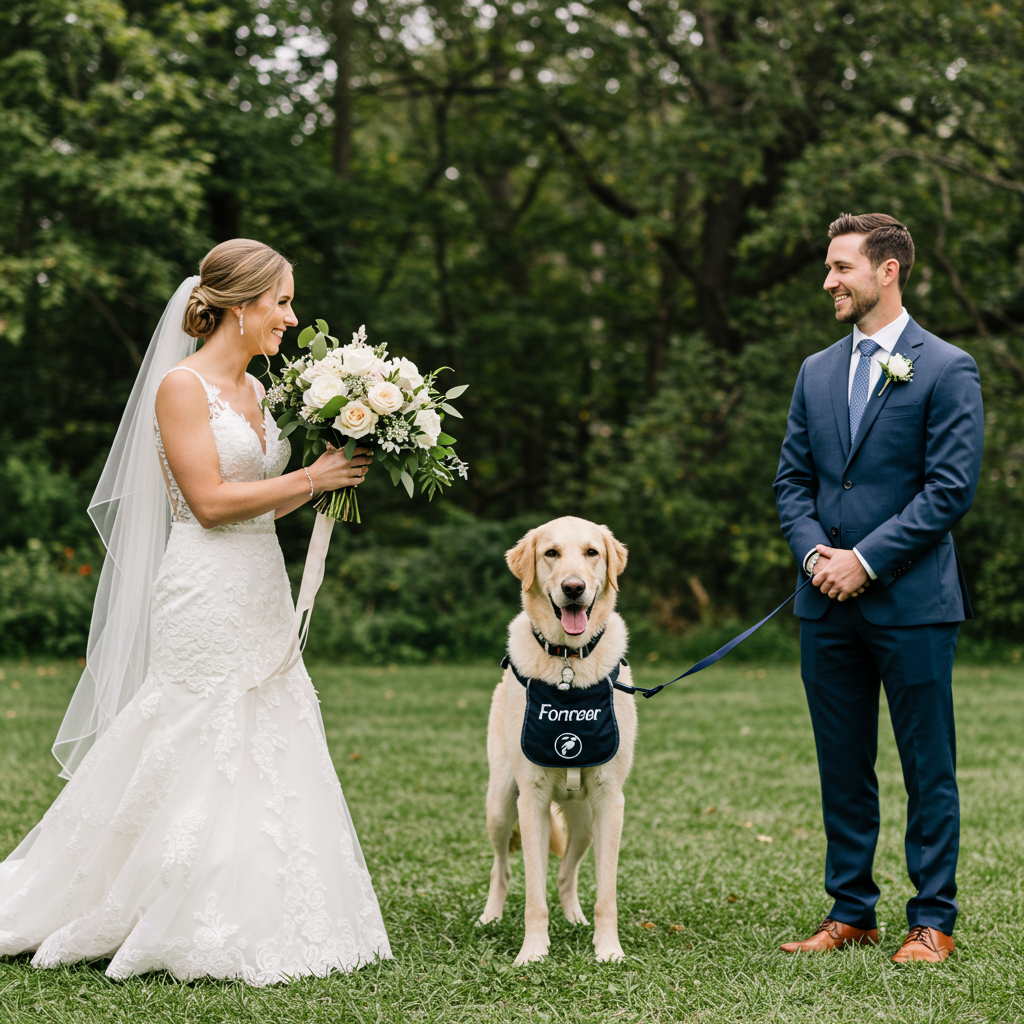
Sara wasn’t unsympathetic. In her post, she explained that she understands Emma’s condition and has seen how helpful the dog is in public. But her reasoning came down to the following points:
-
The vineyard has a no-animal policy due to liability and local health codes.
-
One of her other guests has a severe dog allergy and is in the bridal party.
-
She envisioned a formal, allergy-sensitive event and worried about distractions.
She offered to help Emma find alternative support for the day—like bringing a mutual friend as a companion or having access to a private lounge if she needed a break.
Emma was heartbroken and furious. She said Sara was discriminating against her, devaluing her mental health, and making her choose between her well-being and being part of a major milestone.
The Internet Reacts: A Mixed Verdict

Sara took to Reddit to ask: AITAH for telling my best friend she can’t bring her service dog to my wedding?
Reddit Users Had Divided Opinions
Support for Sara:
-
“It’s your wedding, your rules. You even offered alternatives.”
-
“A service dog isn’t just a plus-one—it changes the atmosphere. If the venue and another guest’s health are factors, that matters.”
Support for Emma:
-
“You’re excluding someone with a disability. Service dogs aren’t pets—they’re essential.”
-
“Imagine telling someone with a wheelchair they can’t attend because of a carpeted venue.”
Others offered middle ground: “Could the service dog attend just the ceremony? Or stay in a quiet area nearby unless needed?”
Accessibility vs. Personal Preference
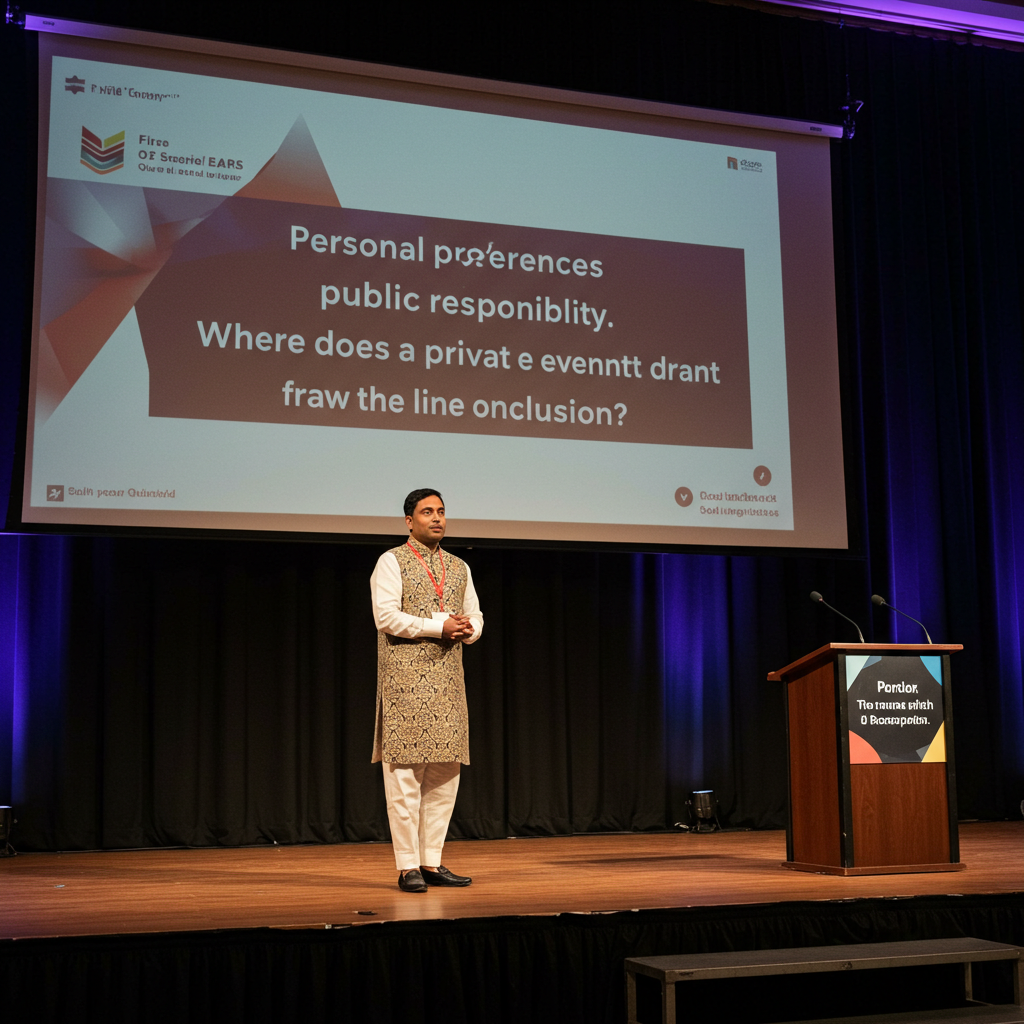
Where Do We Draw the Line?
This scenario raises a larger question: How do we balance accommodating accessibility needs while also maintaining personal boundaries for major life events?
Legally, service animals must be allowed in public places. But private events held at third-party venues are a legal and ethical gray area—especially if the venue has strict rules or other guests have conflicting health needs.
While Sara wasn’t breaking the law, the emotional and moral implications complicate things.
Communication Is Key
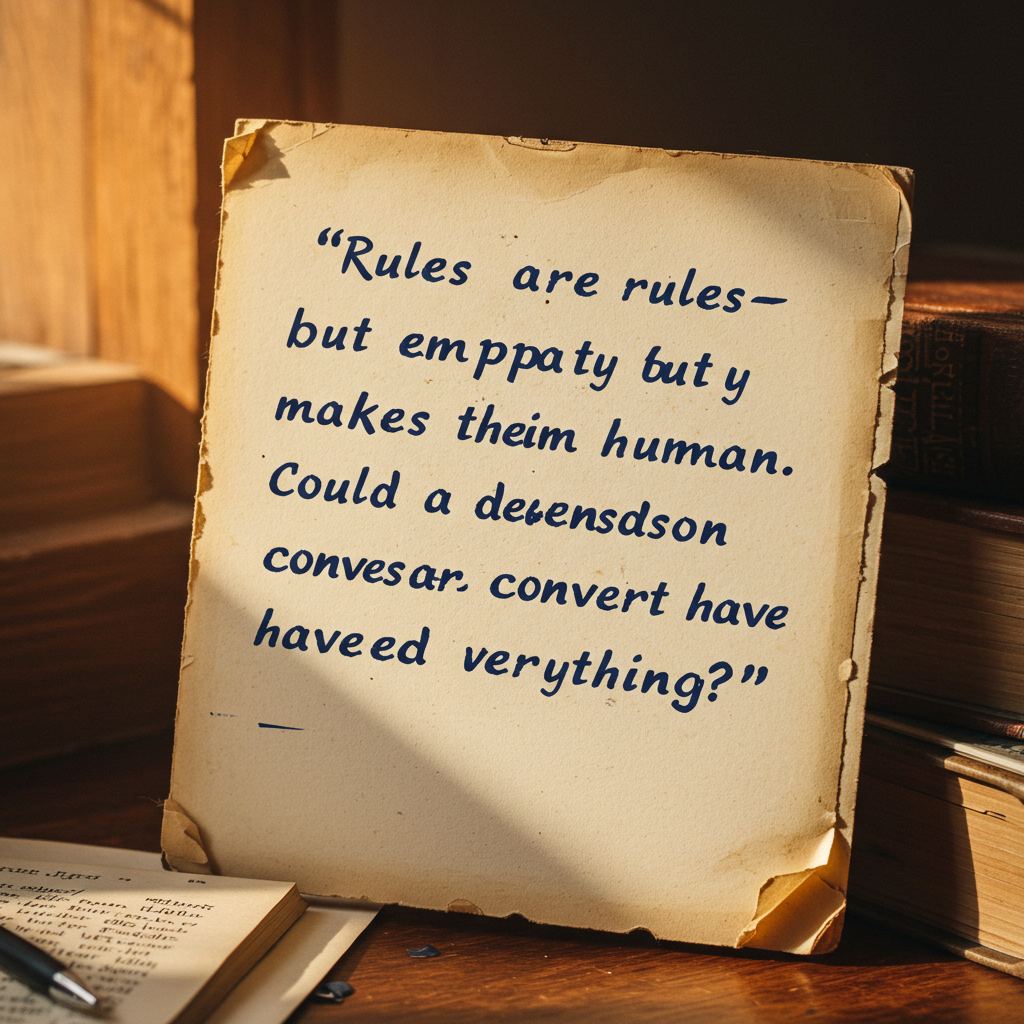
How Sara Could Have Handled It Better
-
Have a direct and empathetic conversation, not just an RSVP form.
-
Include Emma early in the planning process to work toward a solution together.
-
Consider a neutral compromise, like dog-friendly accommodations near the venue or quiet zones for emotional support.
What Emma Might Consider
-
Recognize that weddings are not public spaces, and logistical limitations aren’t always personal.
-
Evaluate if other coping strategies (medication, trusted guests, short attendance) could help make it manageable.
Lessons from the Story
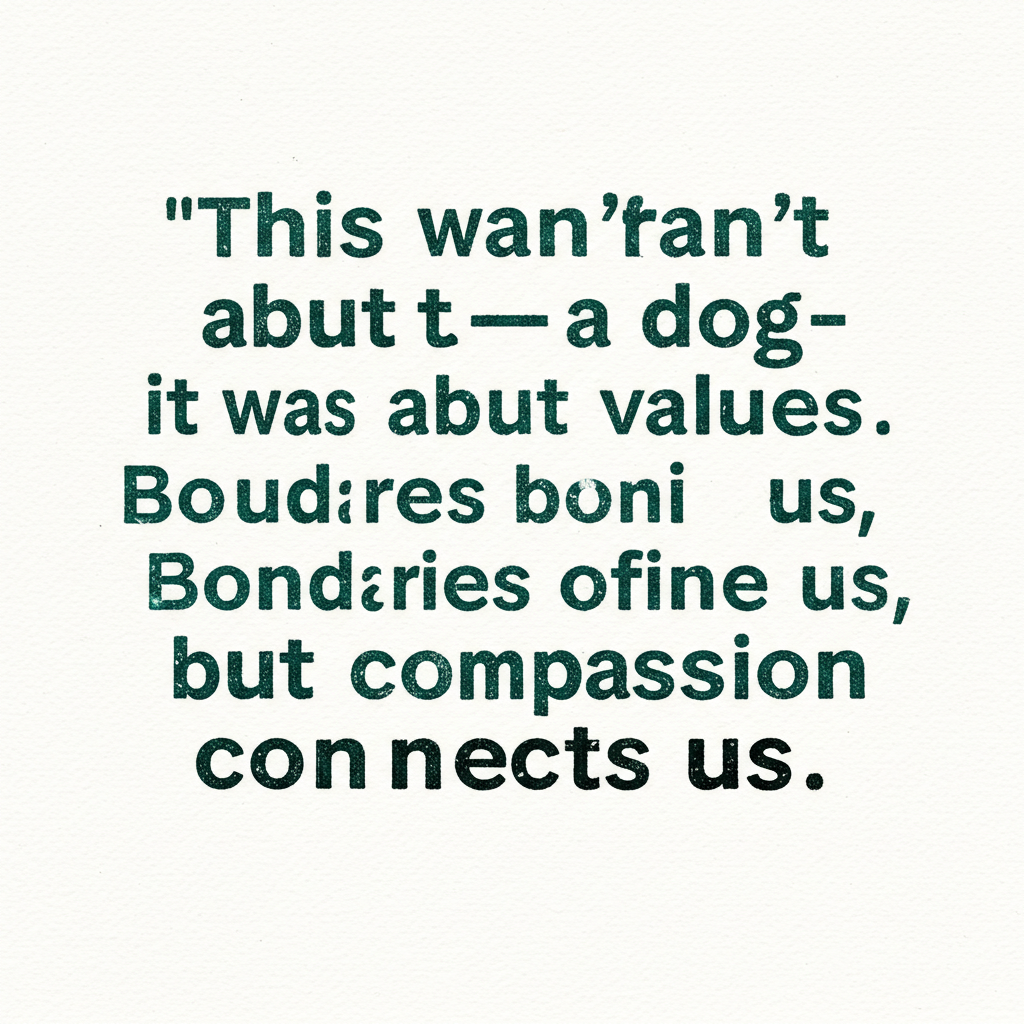
-
Service dogs are not accessories—they’re crucial for some people’s daily lives.
-
Being honest with your boundaries is valid, but so is hearing out someone else’s needs.
-
Weddings test relationships—they reveal which differences can be navigated, and which may run too deep.
This situation is less about dogs and more about values. Does honoring your vision for your wedding mean compromising inclusivity? Or is asking someone to adjust a serious health accommodation crossing the line?
The Final Takeaway

Sara isn’t necessarily the villain—but this situation shows that being “right” doesn’t always mean being compassionate. Sometimes, the hardest part of setting boundaries is doing it without pushing people out.
Emma, on the other hand, has every right to advocate for her needs—but should also recognize the complexity of the situation. Weddings aren’t perfect events. They’re messy, emotional, and filled with compromises.
